Related Research Articles
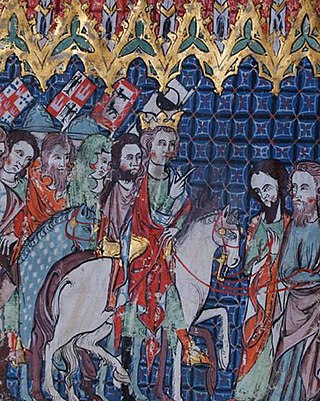
Alfonso XI, called the Avenger, was King of Castile and León. He was the son of Ferdinand IV of Castile and his wife Constance of Portugal. Upon his father's death in 1312, several disputes ensued over who would hold regency, which were resolved in 1313.
Ayuntamiento is the general term for the town council, or cabildo, of a municipality or, sometimes, as is often the case in Spain and Latin America, for the municipality itself. Ayuntamiento is mainly used in Spain; in Latin America alcaldía is also for municipal governing bodies, especially the executive ones, where the legislative body and the executive body are two separate entities. In Catalan-speaking parts of Spain, municipalities generally use the Catalan cognate, ajuntament, while Galician ones use the word concello, Astur-Leonese conceyu and Basque udaletxea. Since ayuntamiento is a metonym for the building in which the council meets, it also translates to "city/town hall" in English.
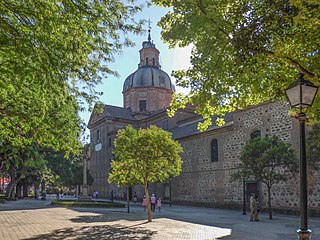
Talavera de la Reina is a city and municipality of Spain, part of the autonomous community of Castile–La Mancha. Its population of 83,303 makes it the second most populated municipality of the province of Toledo and the fourth largest in the region.

Yernes y Tameza is a municipality in the Autonomous Community of the Principality of Asturias, Spain. It is situated in the east-central zone of the principality, between mountains high along the Cubia River. It is bordered on the west, north, and northeast by Grado, on the southeast by Proaza, and on the south by Teverga. The municipality has an abrupt topography, most notable in the peak Caldoveiru (1,357 m) and the Tameza River, which crosses the municipality from south to north.

The municipality is one of the two fundamental territorial divisions in Spain, the other being the provinces.

The 2007 Spanish local elections were held on Sunday, 27 May 2007, to elect all 66,131 councillors in the 8,111 municipalities of Spain and all 1,038 seats in 38 provincial deputations. The elections were held simultaneously with regional elections in thirteen autonomous communities, as well as local elections in the three foral deputations of the Basque Country and the eleven island councils in the Balearic and Canary Islands.
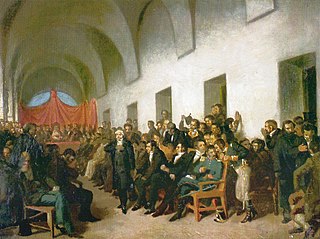
A cabildo or ayuntamiento was a Spanish colonial and early postcolonial administrative council that governed a municipality. Cabildos were sometimes appointed, sometimes elected, but were considered to be representative of all land-owning heads of household (vecinos). The colonial cabildo was essentially the same as the one that was developed in medieval Castile.
Zarzosa de Río Pisuerga is a municipality located in the province of Burgos, Castile and León, Spain. According to the 2004 census (INE), the municipality has a population of 52 inhabitants.

Chequilla is a municipality located in the province of Guadalajara, Castile-La Mancha, Spain. According to the 2004 census (INE), the municipality has a population of 19 inhabitants.
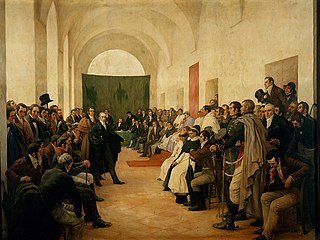
The open cabildo is a traditional Hispanic American political action for convening citizens to deliberate policy. Originating in Spanish America as an iteration of the cabildo, it also spread to Spain.
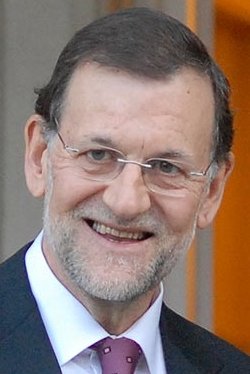
The 2011 Spanish local elections were held on Sunday, 22 May 2011, to elect all 68,230 councillors in the 8,116 municipalities of Spain and all 1,040 seats in 38 provincial deputations. The elections were held simultaneously with regional elections in thirteen autonomous communities, as well as local elections in the three foral deputations of the Basque Country and the eleven island councils in the Balearic and Canary Islands.
An ayuntamiento is the body charged with the government and administration of the municipalities in Spain not bound to the regime of concejo abierto. The ayuntamiento is one of the bodies charged with local government in Spain.

The 2003 Spanish local elections were held on Sunday, 25 May 2003, to elect all 65,510 councillors in the 8,108 municipalities of Spain and all 1,036 seats in 38 provincial deputations. The elections were held simultaneously with regional elections in thirteen autonomous communities, as well as local elections in the three foral deputations of the Basque Country and the ten island councils in the Balearic and Canary Islands.

The 2019 Spanish local elections were held on Sunday, 26 May 2019, to elect all 66,979 councillors in the 8,131 municipalities of Spain and all 1,038 seats in 38 provincial deputations. The elections were held simultaneously with regional elections in twelve autonomous communities, as well as elections in the three foral deputations of the Basque Country, the four island councils in the Balearic Islands, the seven island cabildos in the Canary Islands and the European Parliament.

Local government in Spain refers to the government and administration of what the Constitution calls "local entities", which are primarily municipalities, but also groups of municipalities including provinces, metropolitan areas, comarcas and mancomunidades and sub-municipal groups known as Minor local entities.

Luisa Pastor Lillo, was a Spanish politician.
The regimiento, cabildo de regidores or concejo cerrado was a system of local government established from the 14h century onwards in the Crown of Castile. A feature of the progressive oligarchization of the form of government in the cities, the change from the overruled concejo abierto system entailed a reduction of the government to a relatively small number of regidores. Urban oligarchies intended to fully capture the nomination of the regidores since the beginning. The bulk of the establishment of the new regime chiefly took place between 1345 and the later years of the reign of Alfonso XI of Castile.
The sexmo or sexma was an administrative subdivision present in parts of medieval Castile corresponding to a grouping of rural hamlets within the territorial jurisdiction of a town council. Its articulation primarily responded to the purpose of tax collection, and, insofar they served the Crown to that end, the latter provided certain formal recognition to the administrative organization. They also served to administer communal property. Associated to this division, there was the political office of sexmero, institutionalised towards the 13th century, charged with the collection of pechos.

The 2027 Spanish local elections will be held on Sunday, 23 May 2027, to elect all 66,976 councillors in the municipalities of Spain, all 1,191 provincial seats in 41 provinces and 233 seats in eleven island councils. The elections will be held simultaneously with regional elections in at least eight autonomous communities, as well as local elections in the three foral deputations of the Basque Country, the four island councils in the Balearic Islands and the seven island cabildos in the Canary Islands.
References
- 1 2 Cosculluela Montaner 1987, p. 202.
- ↑ Cosculluela Montaner 1987, pp. 213–214.
- ↑ Cosculluela Montaner 1987, pp. 199–200.
- ↑ Monsalvo Antón 1990, pp. 359–360.
- ↑ Spanish Constitution 1978, Article 140.
- ↑ Cosculluela Montaner 1987, p. 201.